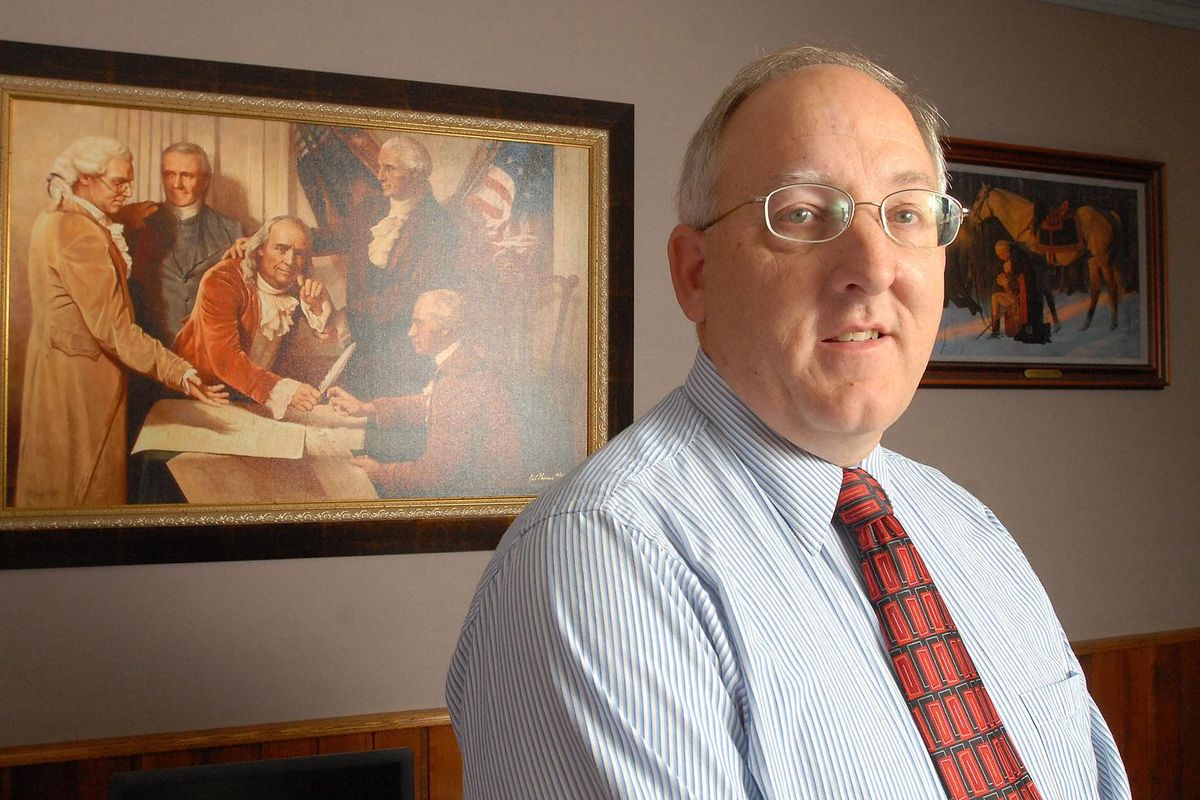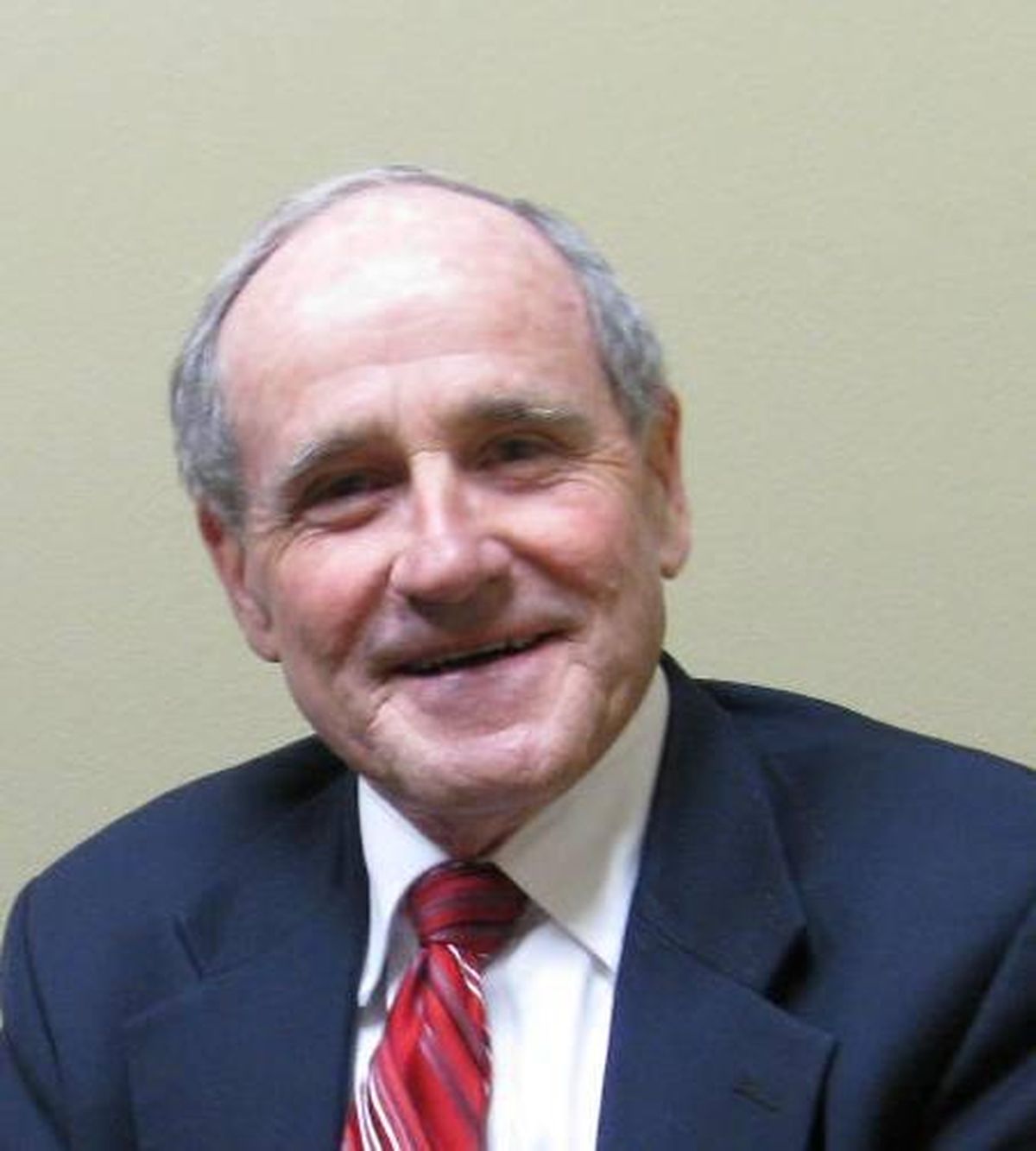Sen. Risch defends secretive process to select new federal judge for Idaho
Idaho Judge David Nye was confirmed by the U.S. Senate on Wednesday, July 12, 2017, to be the state’s next federal district judge. (Doug Lindley / Idaho State Journal)
BOISE – Now that Idaho finally has a nominee for the state’s vacant federal judgeship, Idaho Sen. Jim Risch is defending the lengthy, secretive process he and Sen. Mike Crapo followed over the past 19 months to vet potential nominees, saying anything else would have violated the U.S. Constitution.
“I solicited advice from people whose judgment I trust, but nobody, nobody voted on this but me,” Risch said. “No commission, no group – I made the decision, as the Constitution requires.”
But Russell Wheeler, a fellow with the Brookings Institution, called Risch’s claim that a more open process would have been unconstitutional “patently absurd.”
“By Risch’s logic, the president is violating the Constitution when he submits the names to the FBI to have them do a full field investigation,” said Wheeler, an expert on the selection of federal judges. “It’s not unconstitutional, it’s due diligence.”
President Barack Obama nominated state 6th District judge David Nye to the open position last week, amid praise from Risch and Crapo.
“It takes a unanimous vote of three people,” Risch said, “and obviously those people are the president, Sen. Crapo and myself.”
Senators in roughly 20 states use “vetting committees,” often bipartisan ones, to help screen nominees for federal judge; the president makes the nomination, and the Senate confirms it. Committees typically are used to “preserve the senators’ prerogative while being more open, transparent and inclusive,” Wheeler wrote in a 2011 paper on the panels.
In the past decade, home-state senators have taken an increasing role in selection of federal judges, through an unwritten rule in the Senate Judiciary Committee requiring both home-state senators to complete “blue slips” saying they approve of nominees for federal judge in their state before any hearings are held. That essentially gives the two senators a veto over judge selections, forcing the White House to work with them in selecting nominees.
“The Constitution says nothing about senators making recommendations to the White House,” Wheeler said.
The last time Idaho got a new federal district judge, in 1995, then-Sens. Larry Craig and Dirk Kempthorne, both Republicans, convened a bipartisan commissionto vet 38 candidates and make recommendations on a new federal judge.
Judge B. Lynn Winmill was the commission’s unanimous choice from three finalists; he was nominated by then-President Bill Clinton and confirmed in late 1995 amid praise from both Craig and Kempthorne.
Winmill is now Idaho’s only full-time federal district judge, since longtime Judge Edward Lodge took senior status last July 3, reducing his caseload. The federal courts have declared a “judicial emergency” in Idaho due to the lack of judicial resources, and out-of-state judges have been brought in to hear Idaho cases.
Lodge announced his retirement plans in September 2014. A few months later Risch and Crapo began accepting email inquiries from interested applicants. Applicants were “numerous, in the dozens, in the dozens,” Risch said. However, Nye wasn’t among them. Nye said last week that he was contacted personally by the two senators by phone in January 2016 about the position.
“We considered everyone who applied, and some who didn’t,” Risch said, “on the basis of what we wanted to see from a philosophical and judicial standpoint.”
James Ruchti, a Pocatello attorney and Idaho Trial Lawyers Association board member, criticized the selection process but praised praised Nye’s nomination.
“I was surprised that the process that was used was so opaque and messy,” he said.
Last spring, there was an outcry from female members of the Idaho Bar after word surfaced that the two senators had interviewed only four men for the lifetime appointment, though at least five prominent female Idaho attorneys, including at least one sitting judge and two high-ranking prosecutors, had applied. Idaho is one of just two states in the nation that has never had a female U.S. district judge. Risch and Crapo subsequently interviewed some female candidates.
Last fall, Idaho attorneys reported receiving bar questionnaires about a possible nomination of Boise attorney Erika Malmen to the seat. She had little trial experience but strong GOP political connections. That nomination subsequently didn’t proceed, and similar vetting began for state District Judge Richard Bevan of Twin Falls; his nomination also didn’t proceed.
Crapo said he didn’t think using a vetting committee would have sped the process.
“We actually submitted our first round of recommendations to the White House in probably early May, which was two or three months before Judge Lodge’s retirement,” he said.
The delay, he said, came in finding someone acceptable both to the senators and the White House.
Risch said he paid no attention to the gender of applicants.
“No one had an advantage because they were a man. No one had an advantage because they were a woman,” he said. “Those considerations were off the table.”
Crapo said he hopes that there will be a female judge appointed for Idaho in the near future.
“It did not work out in this case,” he said. “But I think that is a very worthy objective that we should seek to fulfill as soon as we reasonably can.”

